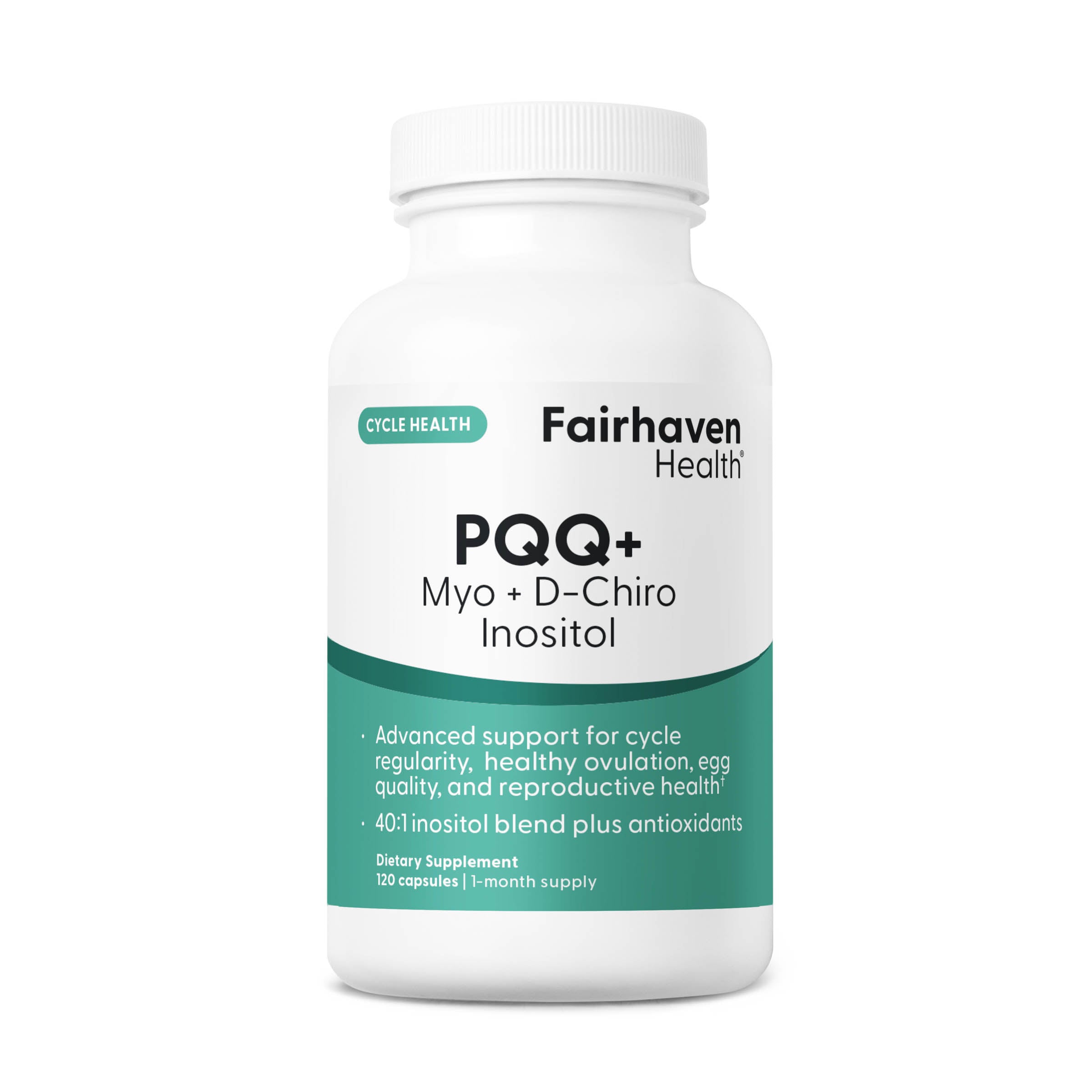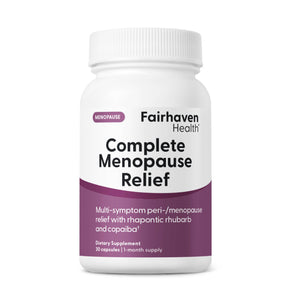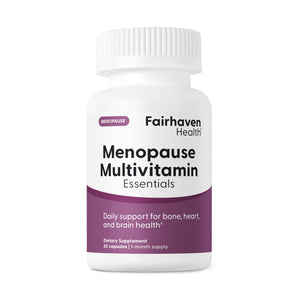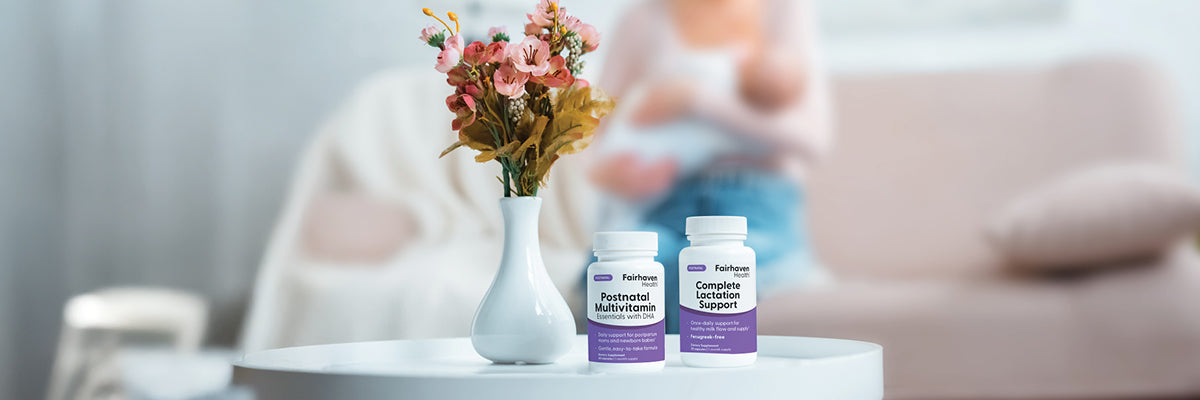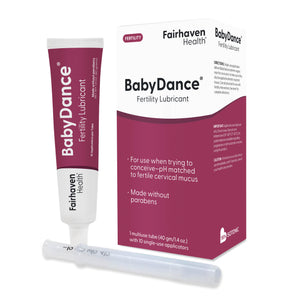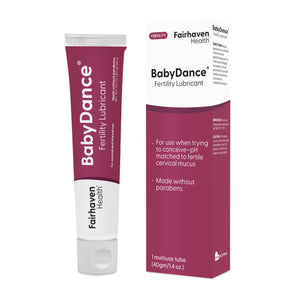By Avni Dalal, ND
In Part 1 of this series, we took a deep dive into why common perimenopause and menopause symptoms—like hot flashes, joint discomfort, and mood changes—occur, all rooted in hormonal and physiological shifts. Now in Part 2, we’re focusing on the "what can I do about it?" side of things.
From simple lifestyle adjustments to targeted nutrients and herbal support, we walk through natural, evidence-informed, nonhormonal therapies to help ease each of the 13 major menopause symptoms and support your body through this transition.
1. Hot Flashes
Tips:
- Dress in breathable clothing made out of cotton, linen, and bamboo (bamboo-derived viscose) and stay away from synthetic fabrics like polyester and nylon that tend to trap heat and moisture.
- Practice paced breathing or meditation to regulate vasomotor responses.
Supportive Nutrients & Herbs:
- Vitex, red clover, and rhapontic rhubarb extract have shown potential in easing hot flashes.1-3 Rhapontic rhubarb has been shown to reduce hot flashes and other symptoms by up to 93%.4,5*
- Copaiba extract has anti-inflammatory benefits that support a balanced body temperature.6,7
- Vitamin E and omega-3 fatty acids may help reduce frequency or severity of hot flashes.1-3
2. Night Sweats
Tips:
- Keep your bedroom cool and well-ventilated.
- Use moisture-wicking bedding and nightwear.
Supportive Nutrients & Herbs:
- Nutrients & herbs similar to those for management of hot flashes can also be beneficial for night sweats.1-3*
- Magnesium may support thermoregulation and nervous system balance.8*
3. Menstrual Anxiety
Tips:
- Track moods alongside your cycle to anticipate shifts in the perimenopausal period.
- Engage in stress-reducing practices like journaling, meditation, and/or yoga.
Supportive Nutrients & Herbs:
- Rhapontic rhubarb, L-theanine from green tea extract, magnesium glycinate, and vitamins B6, B9, and B12 support a calm nervous system.8-10
- Copaiba is a plant-based oil that works synergistically with rhapontic rhubarb to expand its effects for faster and more complete relief, including mood and stress-related symptoms.11
- Chasteberry (Vitex agnus-castus) may help smooth hormonal fluctuations in perimenopause.10
4. Negative Mood
Tips:
- Stay socially connected and prioritize regular movement (like walking or swimming).
- Consider therapy or support groups if mood changes persist.
Supportive Nutrients & Herbs:
- Vitamin D, B-complex vitamins, and omega-3s support mood regulation.9,10
- Copaiba extract supports healthy stress levels, positive moods, and a sense of calm by delivering beta-caryophyllene to provide balanced phytoestrogenic, cannabinoid, and neuronal system support.6,7
- Saffron and St. John’s wort have shown benefits for mild depressive symptoms (remember to consult with a healthcare professional due to medication interactions with herbs like St. John’s wort).9,10
5. Irritability
Tips:
- Carve out quiet time for yourself and reduce exposure to overstimulation.
- Practice mindfulness and schedule downtime to reset.
Supportive Nutrients & Herbs:
- Ashwagandha and rhodiola help support stress resilience.2
- Magnesium and L-theanine calm the nervous system and may reduce reactivity.3,8
- Copaiba extract has anti-inflammatory benefits that support a healthy nervous system.6,7
6. Sleep Disturbances
Tips:
- Keep a regular sleep schedule and avoid screens before bedtime.
- Create a wind-down routine with calming rituals like reading or a warm bath.
Supportive Nutrients & Herbs:
- Rhapontic rhubarb has been shown to reduce night sweats and other sleep disturbances by up to 93%.4,5
- Melatonin may help regulate circadian rhythms and has been found to significantly improve subjective sleep quality in women going through perimenopause or menopause (use under guidance).12
- Valerian root, chamomile, lemon balm, and passionflower are gentle herbs for sleep support.13,14
- Glycine and magnesium can improve sleep quality.8
7. Exhaustion
Tips:
- Address root causes like poor sleep, low blood sugar, low micronutrient levels (like vitamin D or iron), or even just from an overcommitment of your time.
- Incorporate movement, even in short bursts, to boost energy.
Supportive Nutrients & Herbs:
- CoQ10, vitamin B12, vitamin D, and iron (if deficient) are all nutrients that support energy production.15
- Adaptogens like rhodiola and Ashwagandha may enhance stamina, improve energy levels, and help mitigate fatigue by supporting the body’s stress response.15
8. Low Libido
Tips:
- Prioritize intimacy and open communication with your partner(s) about changing needs, desires, and comfort levels to reduce performance pressure and increase connection.
- Create space for self-connection and address discomfort like vaginal dryness or pain during intimacy. Speak with your healthcare provider, as there are safe and effective options that can provide relief.
Supportive Nutrients & Herbs:
- Maca root, fenugreek (Trigonella foenum-graecum) and Tribulus terrestris are herbs that have been traditionally used for sexual vitality and have been shown in studies to improve sexual function, libido, and overall sexual satisfaction in women going through perimenopause and menopause.16
- L-arginine supports blood flow and nitric oxide production, which can increase vasodilation to enhance arousal.17
- Copaiba extract supports libido by delivering beta-caryophyllene to provide balanced phytoestrogenic, cannabinoid, and neuronal system support.6,7
9. Urinary Tract Complaints
Tips:
- Stay well-hydrated with plenty of water to flush bacteria from the urinary tract and avoid bladder irritants like caffeine or acidic foods, which can aggravate sensitive bladder tissues.
- Incorporate pelvic floor exercises into your daily routine to help strengthen the muscles that support the bladder and urethra.
Supportive Nutrients & Herbs:
- Rhapontic rhubarb works as a phytoestrogen (ER beta agonist), providing targeted relief from symptoms of estrogen decline, helping women find relief from vaginal dryness, sexual disturbances, and frequent UTIs.4,5
- D-mannose and cranberry extract support urinary tract health.18,19
- Probiotics (especially Lactobacillus strains) may support a balanced urogenital microbiome.18,20
10. Heart Complaints
Tips:
- Avoid excessive caffeine and engage in regular physical activity such as walking, swimming, or cycling to improve circulation.
- Schedule regular checkups with your healthcare provider to monitor blood pressure, cholesterol, and glucose levels. Early intervention and lifestyle support are key to long-term cardiovascular health during and after menopause.
Supportive Nutrients & Herbs:
- Magnesium, CoQ10, and Hawthorn berry support cardiovascular function.8,15
- Omega-3 fatty acids have been shown to promote healthy lipid levels and blood pressure and to support a healthy inflammatory response.21
11. Vaginal Dryness
Tips:
- Use water-based or aloe-based lubricants to enhance comfort and/or apply vaginal moisturizers regularly to maintain hydration and support the vaginal lining.
- Consider pelvic floor therapy to improve blood flow, muscle tone, and tissue elasticity in the pelvic region.
- Wear breathable, cotton underwear and avoid harsh soaps or douches, which can further irritate delicate tissues.
Supportive Nutrients & Herbs:
- Rhapontic rhubarb helps women find relief from vaginal dryness, as well as sexual disturbances and frequent UTIs.4,5
- Sea buckthorn oil (oral or topical) along with vaginal hyaluronic acid supports vaginal moisture and can provide relief of dryness, itching, and burning.22,23
- Topical vitamin E application or suppositories may provide local relief for vaginal dryness and tissue sensitivity.24
- Beta-caryophyllene has been shown to improve vaginal sensation during intercourse.25
12. Joint & Muscle Complaints
Tips:
- Incorporate low-impact exercise like swimming or yoga to maintain joint mobility, improve circulation, and reduce stiffness without placing undue stress on the body.
- Stretch daily, especially after waking and before bed, and use heat therapy or massage for tension relief.
Supportive Nutrients & Herbs:
- Turmeric (curcumin extract), glucosamine, chondroitin, vitamin D, and magnesium support joint comfort.26
- Boswellia and omega-3s help with mitigating inflammatory markers that are associated with joint pain and stiffness.27
13. Headaches
Tips:
- Identify and avoid known triggers, which can include certain foods (e.g., wine, aged cheese, chocolate), bright lights, stress, dehydration, lack of sleep, and/or skipped meals.
- Practice regular stress management, such as deep breathing or gentle movement.
Supportive Nutrients & Herbs:
- Magnesium, riboflavin (B2), butterbur, and feverfew may reduce headache frequency, severity, and duration.28-30
- Consider blood sugar and hormone stabilization through balanced meals.
Final Thoughts
Menopause is a natural life stage, but that doesn’t mean the transition is always easy. From hot flashes to headaches, sleep changes to emotional shifts, the range of symptoms can be broad—and deeply personal. The good news is that you don’t have to simply “grin and bear it.” There are many supportive, holistic strategies to help ease the transition and enhance your quality of life so remember to speak to your healthcare provider before making changes to your healthcare regimen so you can receive the care you deserve.
References:
1. Low Dog T. Am J Med. 2005;118.
2. Pinkerton J. N Engl J Med. 2020; 382:446-455
3. Carroll DG. Am Fam Physician. 2006;73(3):457-464.
4. Kaszkin-Bettag M et al. Altern Ther Health Med. 2009;15(1):24-34.
5. Dubey VP et. al. J Biomed Res. 2024;38(3):278-286.
6. Blessing EM et al. Neurotherapeutics. 2015;12(4):825-836.
7. Melas PA et al. Intl J Molecular Science. 2021;22(4):1863.
8. Park H et al. Support Care Cancer. 2011;19(6):859-863.
9. Palacios S et al. Eur Rev Med Pharmacol Sci. 2023;27(17):8180-8189.
10. van Die MD et al. J Altern Complement Med. 2009;15(9):1045-1048.
11. Troup J. Journal of the North American Menopausal Society. 2024.
12. Chan V et al. Postgrad Med J. 2022;98(1158):285-293.
13. Attarian H et al. Menopause. 2015;22(6):674-684.
14. Ali R et al. Comb Chem High Throughput Screen. 2021;24(10):1583-1592.
15. Barnish M et al. Nutrients. 2023;15(9):2154.
16. Najaf Najafi M et al. Climacteric. 2018;21(5):437-445.
17. Ito TY et al. J Sex Marital Ther. 2006;32(5):369-378.
18. Gill CM et al. J Am Med Dir Assoc. 2020;21(1):46-54.
19. Russo E et al. Climacteric. 2020;23(2):201-205.
20. Caretto M et al. Maturitas. 2017;99:43-46.
21. Oliveira PWC et al. Curr Pharm Des. 2020;26(30):3711-3722.
22. Casiano Evans EA et al. Obstet Gynecol. 2023;142(3):555-570.
23. De Seta et al. Maturitas. 2021;147:34-40.
24. Abdi F et al. Eur J Obstet Gynecol Reprod Biol. 2021;261:222-235.
25. Jha NK et al. Front Pharmacol. 2021;12:590201.
26. Brophy RH et al. J Am Acad Orthop Surg. 2022;30(9):e721-e729.
27. Rosenbaum CC et al. Altern Ther Health Med. 2010;16(2):32-40.
28. Tepper SJ et al. Curr Pain Headache Rep. 2025;29(1):33.
29. D'Onofrio F et al. Neurol Sci. 2017;38(Suppl 1):117-120.
30. Sun-Edelstein C et al. Clin J Pain. 2009;25(5):446-452.
